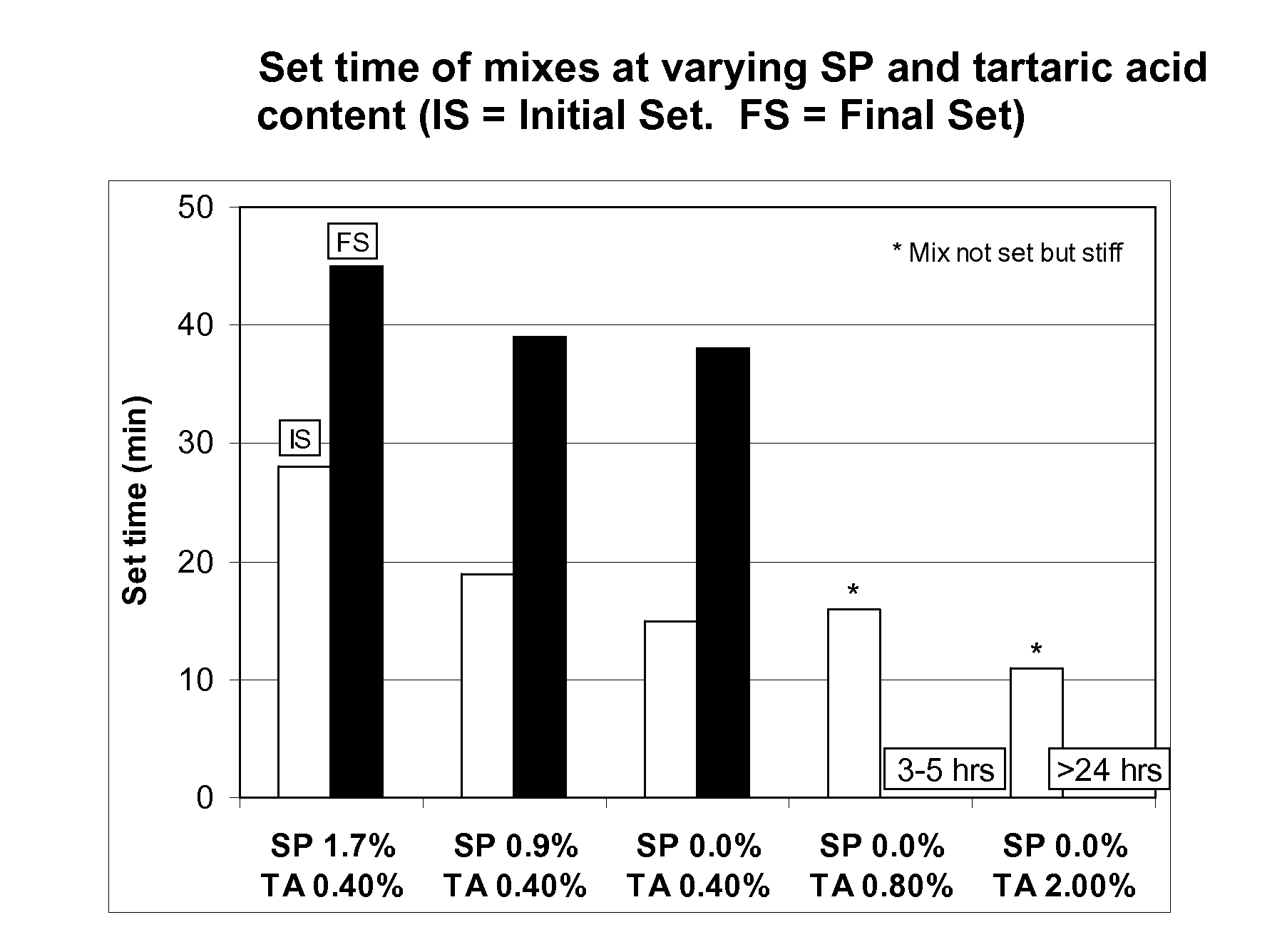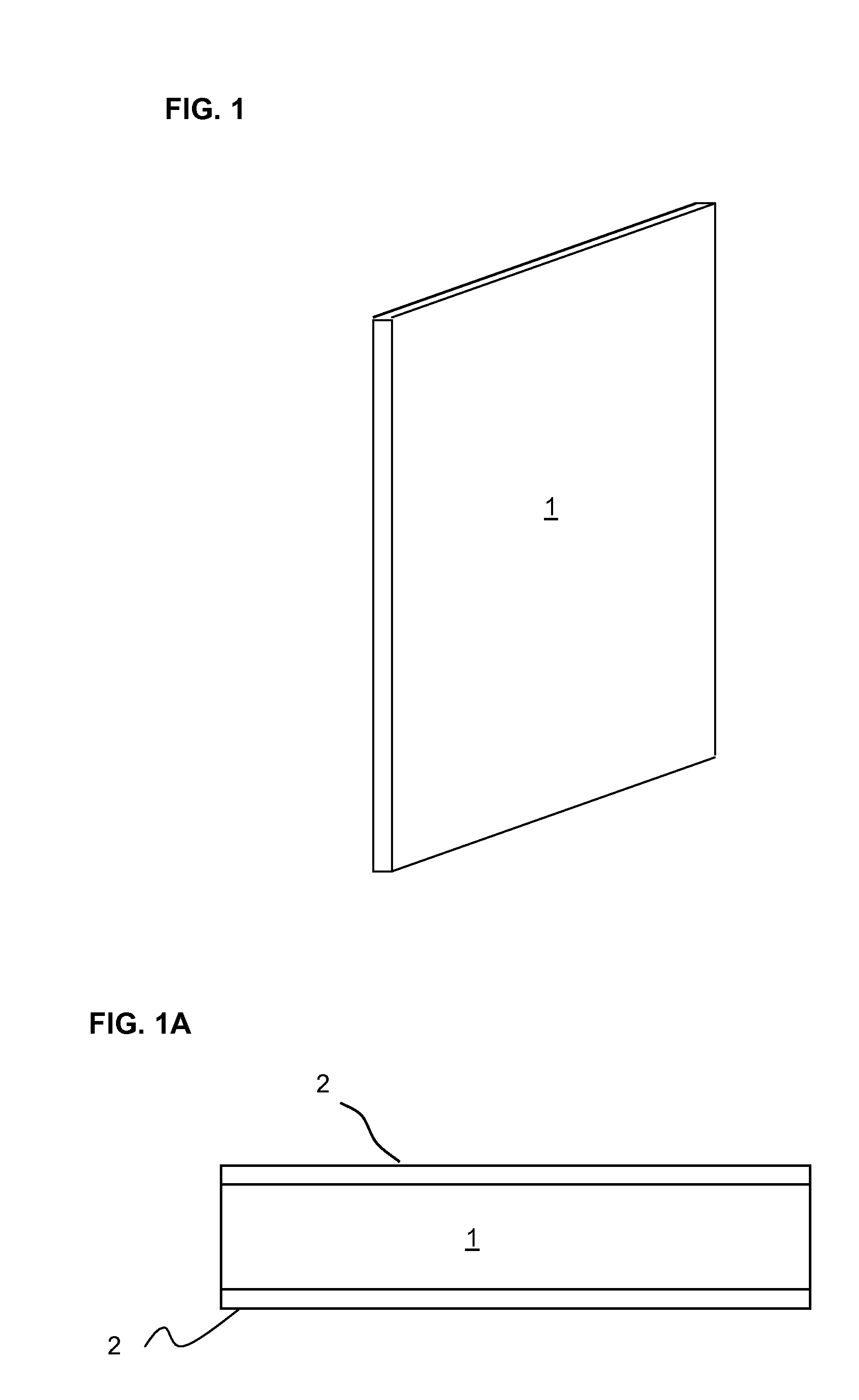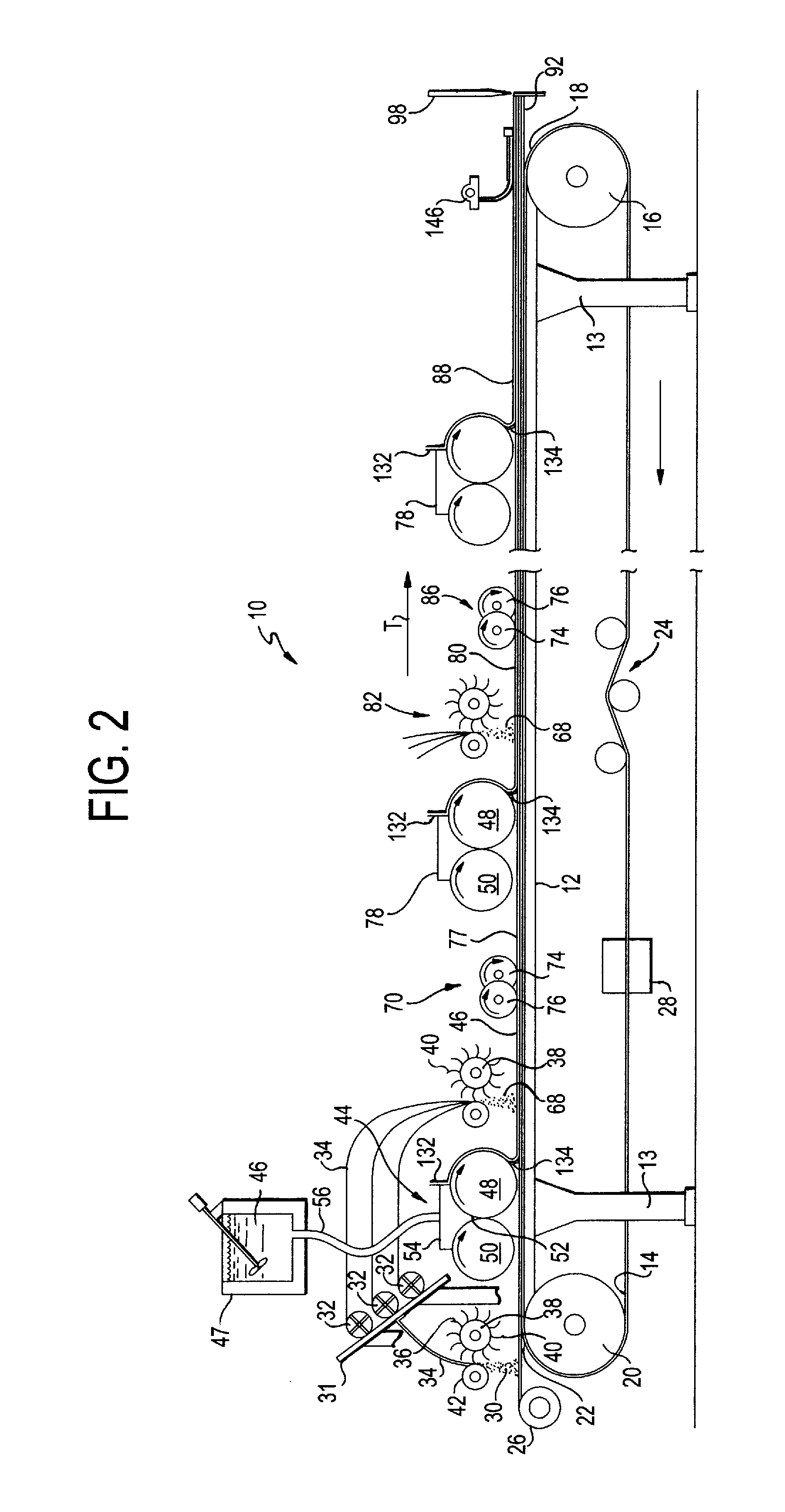Process of manufacturing cement based armor panels
a technology of cement-based armor and production line, which is applied in the direction of armour, water-setting substance layered products, solid waste management, etc., can solve the problems of insufficient compressive strength to provide a high degree of resistance to ballistic and blast loads, high cost, and high cost, and achieves ultra-high compressive strength, excellent flow properties, and high compressive strength.
- Summary
- Abstract
- Description
- Claims
- Application Information
AI Technical Summary
Benefits of technology
Problems solved by technology
Method used
Image
Examples
example 1
[0239]Slump was measured by pouring slurry into a 2 inch diameter cylinder that is 4 inches tall (open on each end and placed on end on a flat smooth surface) and screeding the top of the slurry off. This provides a set volume of slurry for every test. Then the cylinder was immediately lifted and the slurry rushed out the open bottom end of the cylinder. This act formed a circular “patty” of slurry. The diameter of this patty is measured in inches and recorded. More fluid slurry will typically result in a larger diameter patty.
[0240]TABLE 3 shows the influence of silica sand content as the inorganic mineral filler on slump of the cementitious mixtures. The other raw materials in the various mixtures were held constant. As the results show, the slump of the cementitious mixtures decreases with an increase in the silica sand content in the mixture.
[0241]Typical formulations for the mixtures in TABLE 3 through 7 are shown in the above discussed TABLE 1.
TABLE 3Inorganic Mineral Filler C...
example 2
[0242]TABLE 4 shows the influence of the particle size of silica sand on slump of the cementitious mixtures. Two types of silica sand were used, the first with a median particle size of about 200 microns and the second with a median particle size of about 10 microns. The other raw materials were maintained constant. As shown in the table, the slump of the cementitious mixtures decreased significantly with the use of finer silica sand in the composition.
TABLE 4MixtureInorganic Mineral Filler TypeSlump in inches (cm)Mix 4Coarse Silica Sand with 2007 in. (17.8 cm)microns median particle size1Mix 5Fine Silica Sand with 10 microns2 in. (5.1 cm) median particle size21Coarse silica sand - US Silica F-55 unground silica2Fine silica sand - US Silica MIN-U-SIL 40 ground silica
example 3
[0243]TABLE 5 shows the influence of silica fume pozzolanic micro filler content on the slump of the cementitious mixture with all other raw materials maintained constant. It can be observed that the slump of the cementitious mixtures decreases with an increase in the content of silica fume in the mixture.
TABLE 5MixtureSilica Fume Content1Slump in inches (cm)Mix 615%9.5 in. (22.8) Mix 725% 6 in. (15.2)Mix 835%3 in. (7.6)1Silica Fume content expressed as a weight % of total cementitious materials, where Portland cement and Silica sand are considered as cementitious materials in the mixture. For example, Mix 6 contains 15 parts by weight silica fume and 85 parts by weight combined portland cement and silica sand.
PUM
| Property | Measurement | Unit |
|---|---|---|
| particle size | aaaaa | aaaaa |
| median particle size | aaaaa | aaaaa |
| compressive strength | aaaaa | aaaaa |
Abstract
Description
Claims
Application Information
 Login to View More
Login to View More - R&D
- Intellectual Property
- Life Sciences
- Materials
- Tech Scout
- Unparalleled Data Quality
- Higher Quality Content
- 60% Fewer Hallucinations
Browse by: Latest US Patents, China's latest patents, Technical Efficacy Thesaurus, Application Domain, Technology Topic, Popular Technical Reports.
© 2025 PatSnap. All rights reserved.Legal|Privacy policy|Modern Slavery Act Transparency Statement|Sitemap|About US| Contact US: help@patsnap.com



